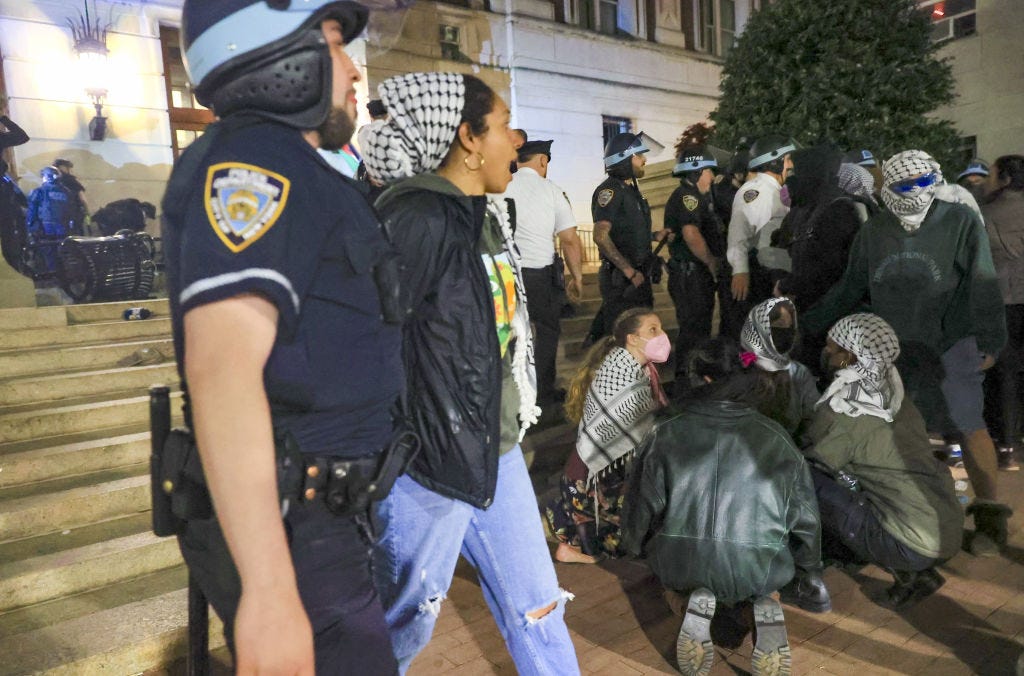SPEAK UP: Campus protests and the challenge of changing the world
What's the right way to ask for change? What are the rules? And why?
So much of what we’ve been concerned with at The Ink this year is about change: what we have changed in the past, what change we need now, what it will take to achieve it — and, perhaps most importantly, why and how we need to help people deal with it — and what we risk if we don’t.
So much of what’s unfolding right now, so many of the problems we face, have to do with the challenge of how to meet change.
The appeal of Trumpism, we’d argue, grows out of our failure to manage the positive changes wrought in the name of civil rights, and the negative ones that have been made under the banner of neoliberalism. Above it all is the specter of the changing climate, threatening to undo all of our plans.
Thinkers are working to understand what comes next and how to avoid the mistakes of the past. And our most forward-thinking leaders are working to diagnose and address the emotional impacts of change — and how to speak to and offer help to those who most need it.
And this week, we’ve all been witness to young people across the country pushing for change in ways that recall past struggles, but looking toward a different future. University administrators have responded with everything from police mobilizations and mass arrests to messages of support in the name of free expression; meanwhile the question of what the student protestors want — as well as the reality of the ongoing Israel/Hamas war and devastation in Gaza — has been obscured by the battle in the media and in Congress to frame who they are and what they represent, against the background of a continuing attack from the right on higher education — and education itself, at least as we know it today.
Anand talked about this with Mara Gay, Frank Bruni, Mika Brzezinski, and Willie Geist on “Morning Joe” yesterday:
But we want to hear from you. As we asked earlier this week:
How do you go about changing things? Do you play it cool or play it rough? What are the rules? And why?
We’re asking these questions in light of the student protest movement in opposition to the war in Gaza, but they clearly have larger implications for American politics and the future of the country.
Let us know your thoughts. Talk about the changes you’d like to see, the changes you think are still incomplete, the ways in which they might be achieved, the paths that should be avoided.
These open forums are for our subscribers, and, as such, we expect people to be generous and open, to listen and to share. This is not for anyone with an internet connection. This is your space.
A request for those who haven’t yet joined us: The interviews and essays that we share here take research and editing and much more. We work hard, and we are eager to bring on more writers, more voices. But we need your help to keep this going. Join us today to support the kind of independent media you want to exist.
And today we’re offering you a special discount of 20 percent if you become a paying subscriber. You will lock in this lower price forever if you join us now!
Photo by Selcuk Acar/Anadolu via Getty Images




